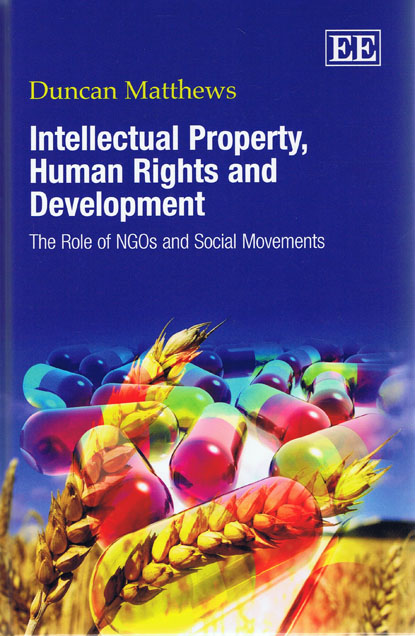
This insightful and important new book explores the role played by Non Governmental Organizations (NGOs) in articulating concerns at the TRIPS Council, the WIPO, the WHO, the CBD-COP and the FAO that intellectual property rights can have negative consequences for developing countries.
Duncan Matthews describes how coalitions of international NGOs have influenced the way that the relationship between intellectual property rights and development is understood, often framing the message as a human rights issue to emphasize these concerns and ensure that access to medicines, food security and the rights of indigenous peoples over their traditional knowledge are protected.
Based on extensive research undertaken in Geneva and in developing countries, the book also reveals how NGOs and broader social movements in Brazil, India and South Africa have played a crucial role in addressing the negative impacts of intellectual property rights by using human rights law as a practical tool before national courts and when seeking to influence national legislation and government policy.
Intellectual Property, Human Rights and Development will appeal to academics, practitioners, activists, international negotiators and to postgraduate students in intellectual property law, human rights law, the international political economy of intellectual property rights and development studies.